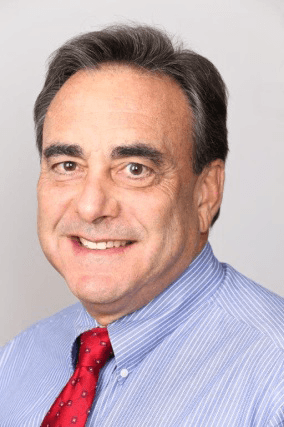What’s a bizarre reason people give for having trouble with their mortgage payments?
“You’ll get a call from someone invariably who will say, Oh, I can easily afford my mortgage, I don’t have a problem paying my mortgage I just don’t want to pay it.”
Barry says that comment is usually followed by: “My house is upside-down and I want the bank to reduce what I owe because they’ve gotten all that government money and they should give me some, too.” He also pointed out that there are, in fact, program designed to help underwater homeowners, but they all require that borrowers be current on their mortgage. With a sigh, Barry added, “I just wish they had called me before they stopped making timely payments on their mortgage.”
What’s the most memorable call you’ve received since becoming a housing counselor?
Barry recounts a conversation he had some time ago…
“I received a call from a couple who were in foreclosure,” he recalls. “Their son had been convicted of a heinous capital crime and they used up nearly all of their resources on his legal defense. They had also spent thousands of dollars to keep his very old and dying dog alive because it was the last vestige they had of their son. It was an unusual set of circumstances, to say the least!”
What’s the nicest thing a housing client has ever said to you?
“That I gave them hope again,” he smiles. “That they’ve tried and tried to get help from their lender, but to no avail. And it wasn’t until they came to us, to Consolidated Credit’s Housing Department, that they were actually able to get the help that they needed. It restored their hope.”
How does hearing that make you feel?
“It’s a wonderful feeling. Giving someone hope again is very gratifying,” he says. “Although you can’t help everybody keep their house. There are people who, as you look into their situation, you determine that home retention is not necessarily the best solution for them. Getting them to accept another reality can be as rewarding as when you help someone else keep their house.”
What’s a typical reaction of people who’ve been told that the best option is to give up their homes?
“You have to be very careful how you tell them,” said Barry. A typical reaction usually is, “No this is my house I want to stay in it.”
Barry says you have to take them on a process of going through their finances a very detailed manner. “Ultimately it’s their decision, but it is a counselor’s responsibility to show them there are other alternatives they may want to consider, that life might be easier without the burden of home ownership.”
Has anyone cried upon completion of the program?
Quite a few people cry at the beginning because they are so distressed over the prospect of losing their home,” he says. “And then they typically go through a metamorphosis, where they start to see a light at the end of the tunnel. When you finally achieve that for them, the realization that their lives will get better, several of them cry at the end too.”
Barry says they’ll often tell him…
“I never thought that was possible. I thought I was going to lose my home and I can’t thank you enough. I never understood the ins and outs of what had to be done and you explained it perfectly to me.”
What do your friends and family think about your job?
“Some of them think I’m in the mortgage business,” he says. “People don’t understand it even when homeowners call us. They don’t understand what a housing counselor is or does. It’s often because they’ve spoken with people involved in foreclosure rescue and mortgage modification scams who want to charge them money for this help. We work on grants, hand-in-hand with various government-sponsored programs. Our clients don’t pay us any money for foreclosure prevention counseling.”
Do you have any parting advice for homeowners and potential home buyers?
“If you run into difficulty, the first call you should make is to your lender. Don’t hide from them,” Barry advises. “The second-best call you should make is to a HUD-approved housing counseling agency.”
Prevent foreclosure
One of the fundamentals of the American dream is owning a home. Unfortunately, bad things can happen that put your at risk. When they do, and you’ve been driven to the point of losing your home, call 1-800-435-2261 to speak with one of our HUD-certified housing counselors.
